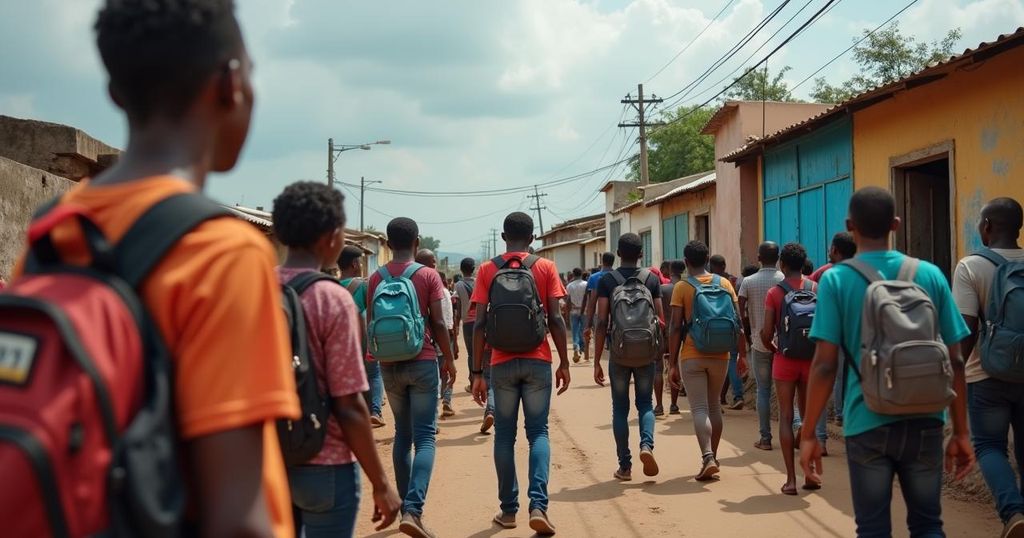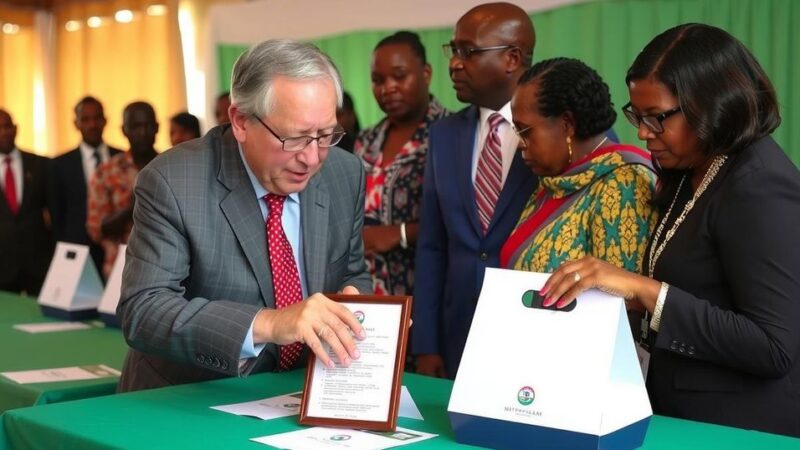The recent surge of Haitian migrants in the U.S. is now a critical political issue, spotlighted by statements from former President Trump and Senator J.D. Vance. The Biden administration’s decision to not extend the parole periods for migrants from Haiti has added complexity to the political discourse as the 2024 elections loom. Approximately 1.15 million Haitians reside in the U.S., with significant populations in Florida and New York, while discussions of their legal statuses and community impact continue to unfold.
The surge of Haitian migrants entering the United States has escalated into a significant political matter in recent months, largely due to remarks from former President Donald Trump and Senator J.D. Vance, who have addressed the implications of this migration for cities such as Springfield, Ohio. The Biden administration’s current process of granting parole to migrants from four countries—including Haiti—has attracted substantial attention. Under this process, migrants can enter the U.S. and receive temporary work permits valid for two years. This summer, the administration also provided a pathway for some individuals to avoid deportation by designating Haiti for Temporary Protected Status (TPS). Recently, however, the Biden administration announced that it would not be extending the parole periods for the nationalities involved in the program, which includes Haitians, thereby necessitating that these individuals either seek different immigration statuses or leave the country. The transition to the electoral campaign season has intensified the debate surrounding Haitian migration, with Trump invoking controversial claims about the behavior of migrants in Springfield, saying, “In Springfield, they’re eating the dogs, the people that came in, they’re eating the cats.” Local officials have refuted these assertions. Senator Vance has also stated that he does not recognize those entering through the parole program as legal immigrants, labeling the program itself as illegal. Currently, there are approximately 1,152,604 Haitian immigrants residing in the United States, a notable increase from nearly 731,000 in 2022. Florida represents the largest Haitian population, housing about 511,621 individuals, followed by New York with 196,698. Significant concentrations of Haitians are evident in specific counties, primarily in Florida and New York. In Springfield, estimates indicate that the Haitian population is around 12,000 to 20,000 residents. Between January and August 2023, around 200,000 migrants arrived via the CHNV program, with 80% landing in Florida cities, such as Miami and Orlando. The Biden administration initially expanded this program to include Haitians in January 2023, permitting 214,000 Haitians to enter the United States under this initiative. However, the recent announcement regarding the non-extension of parole raises questions about the future of these individuals in the U.S., pushing them toward finding alternate immigration statuses or facing deportation. While TPS is still available for eligible Haitians, who must have been in the U.S. as of June 3, the ongoing violence and extreme conditions in Haiti have led to considerable humanitarian concerns under the auspices of the Department of Homeland Security (DHS). There are worries among conservatives that the cessation of parole status will not effectively prompt large numbers of Haitians to leave the U.S. after their periods lapse.
The political landscape surrounding immigration, particularly from Haiti, has become increasingly contentious as the 2024 elections approach. The Biden administration’s response to Haitian migration has undergone scrutiny, especially regarding the policies implemented to manage the influx of migrants and provide mechanisms for their temporary stay. These include parole processes and Temporary Protected Status designed to protect individuals from deportation under specific circumstances. The political discourse surrounding Haitian migration highlights the divergent views among lawmakers and the impact of migration on local communities.
In summary, the increase in Haitian migration to the United States has become a prominent political issue, particularly as the 2024 election approaches. With the Biden administration’s recent decision not to extend parole for certain migrants, the tensions surrounding immigration status and local community impacts are likely to intensify. The implications of Haitian migration are being closely monitored as they raise questions about humanitarian aid, local resource allocation, and the electoral dynamics shaping national debates.
Original Source: www.foxnews.com







